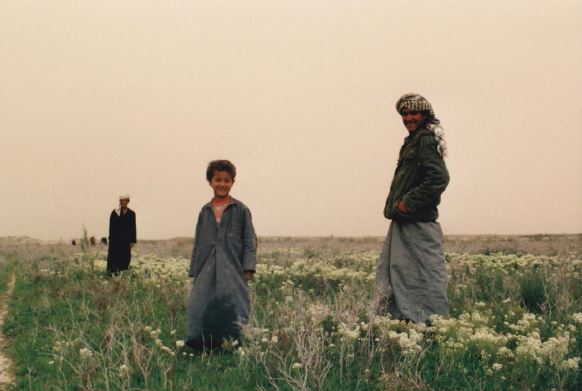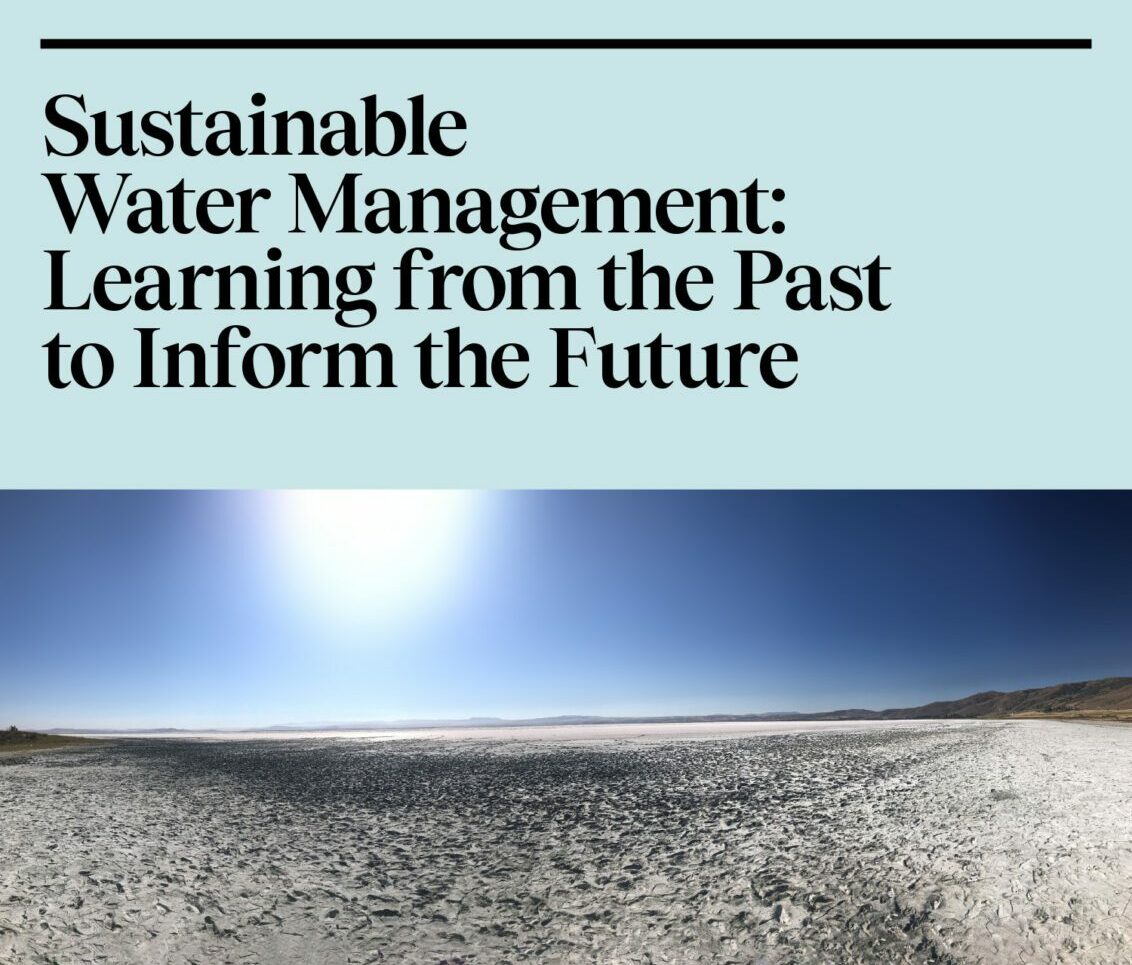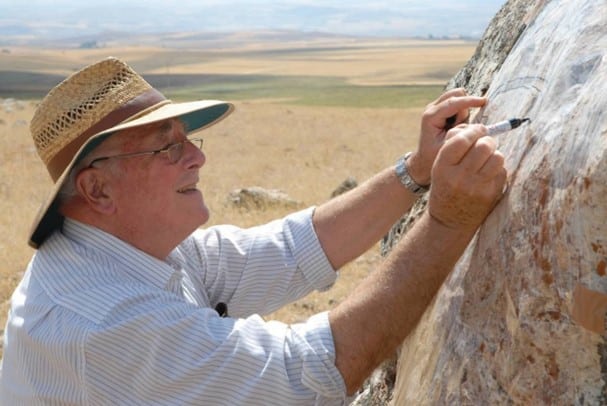
Boys in landscape – the sky looks brown so it may have been the remnants of the dust storm
Abu Salabikh, Iraq 1988: the diary of an archaeological excavation
By 1988 I had been a field archaeologist for a couple of years, working in London and abroad.
By Ali Khadr
By Jerry Youle
By 1988 I had been a field archaeologist for a couple of years, working in London and abroad.
It seemed to me at the time that the Sumerians did not get the credit they deserved for inventing writing, monumental architecture, cities, bricks and so on, with everyone being overly focused on the Egyptians and Romans, just because they left some big buildings behind. So, I was very pleased to be offered the chance to work on a ground-breaking (pun possibly intended) field project focused on revealing the entire plan of a small Sumerian city. This magnificent enterprise was run by Nicholas Postgate of the University of Cambridge, under the auspices of the British Archaeological Expedition to Iraq.
Unfortunately, Iraq was a repressive dictatorship at war with its neighbour. But how could I possibly refuse? I was only 24 years old and on the edge of adventure.
What follows is based on the diary I wrote at the time. It is most definitely not an attempt to explain what was discovered; it is merely the story of what it was like to be there. Let’s start at the beginning with the letter offering me the job:
`The British Archaeological Expedition to Iraq draws the attention of all those visiting under its auspices to the fact that Iraq is currently a war zone. All persons visit Iraq at their own risk’.
The ‘Notes for Dig Staff’ included some further encouraging advice:
To apply for a visa you will need a baptismal certificate or a letter from a reverend of some kind (to establish non-Jewishness).
Iraq is at war, and although it does not affect us much, security is tighter, and policemen and soldiers are emphatically to be obeyed. Also, you must expect letters and phone calls to be censored, so avoid political comment.
The newest problem is AIDS. Government regulations require an AIDs test though it is not clear how this is to be administered so, if you can persuade a doctor to certify your freedom from AIDs (which is unlikely), do.
Medical treatment in Bagdad is good, (though perhaps rather stretched at present).
The latest embarrassment is that loo paper is unobtainable. Please stock up with as much as you can carry.
Welcome to the world of Mesopotamian archaeology.
Latest News
May 3, 2022
Dr Abdulameer al-Hamdani
The Trustees of the British Institute for the Study of Iraq were deeply saddened to hear of the death of Dr Abdulameer al-Hamdani on Friday April 29th in Nasiriyah, Iraq.


